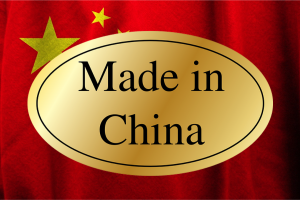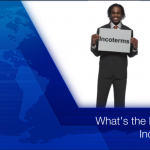Made in Vietnam? Nope — Still Made in China — Shippers Beware
Last week, one of our partners in Vietnam emailed Universal Cargo about the country’s customs significantly increasing inspection “ratio on all cargo bound to the states.” The change in procedure that has Vietnam customs carefully checking cargo destined for the U.S. may cause shippers to suffer delays and carriers to face shortfalls, according to the agent.
Country Origin Fraud
 The reason Vietnamese customs are increasing inspections on cargo headed for the U.S. is a recent rise in customs of origin fraud to beat tariffs on Chinese goods.
The reason Vietnamese customs are increasing inspections on cargo headed for the U.S. is a recent rise in customs of origin fraud to beat tariffs on Chinese goods.
Vietnam is one of the top countries Chinese companies have tried moving goods through in order to circumvent tariffs. Obviously, falsely claiming another country is the point of origin for goods in attempts to avoid tariffs is illegal. But illegal or not, country of origin fraud has surged since the trade war began, especially in Vietnam.
Nguyen Dieu Tu Uyen reported in a Bloomberg article:
“We’ve seen trade-fraud activities increase strongly since the trade war started,” [Au Anh Tuan, head of customs control and supervision in the General Department of Vietnam Customs] said. “We’ve increased cooperation with U.S. authorities to fight against that. We’re taking drastic steps, including compiling a list of 25 items to watch.”
Furniture Among Top Goods in Country of Origin Fraud
Electronics is an obvious category Vietnam is being wary of. Another category under scrutiny that many Universal Cargo customers need to aware of is furniture — wooden furniture in particular. Nguyen Dieu Tu Uyen reports:
Customs officials are focusing on “highly suspicious” sectors — such as electronic components and wooden furniture — that have seen annual exports surge by more than 15%, said Mai Xuan Thanh, deputy director general of the customs department. Hundreds of domestic and foreign companies are under “special scrutiny for suspect exports,” he said.
One of Universal Cargo’s specialties for over 30 years has been helping businesses in the furniture industry import and export furniture. We suggest our clients in the furniture industry, and all industries for that matter, be knowledgeable about your suppliers. The last thing you want is to get caught up in country of origin fraud.
Vietnam’s Crackdown on Country of Origin Fraud
The Bloomberg article continued about Vietnam’s crackdown on country of origin fraud:
Through October, Vietnamese customs had uncovered about 14 significant cases this year of exports with fake labels.
Beginning Dec. 27, Vietnam will suspend transshipment and temporary imports of plywood products headed to the U.S., Industry and Trade Minister Tran Tuan Anh said earlier this month. The National Steering Committee for Anti-Smuggling and Trade Fraud ordered provinces along the country’s borders to step up inspections of goods being imported.
Vietnamese customs last month said it discovered and seized about $4.3 billion of Chinese aluminum falsely labeled “Made in Vietnam” that was meant to be shipped overseas, mostly to the U.S.
There is still more Vietnam could and might do in this fight. A Viêt Nam News article challenges that better state management is needed in the country of origin (C/O) area to avoid trade fraud.
Relevant agencies such as the Ministry of Industry and Trade, the Ministry of Finance, VCCI, the Ministry of Planning and Investment, and the General Department of Customs should strengthen cooperation to solve problems relating to C/O, [Deputy Minister of Industry and Trade Trần Quốc Khánh] said.
The Ministry of Industry and Trade (MoIT) also needs to authorise VCCI to issue more C/O types under the free trade agreements (FTAs) so that the MoIT can reduce its workload related to granting C/O and strengthen the State management in this issue.
At a working day between the Prime Minister’s working team, the VCCI and relevant ministries and agencies on C/O and trade fraud of goods origin in Hà Nội on November 15, Dũng said, according to a report from the General Department of Customs, there was a sudden increase in some goods items exported to the US market and some items imported from China to Việt Nam.
Therefore, the State should have warnings about fraud, counterfeiting and evasion of trade remedies and strengthen close supervision to ensure the economic stability.
More Shippers Impacted Than Those Involved in Tariff Circumvention Through Vietnam
Of course, what Vietnam is doing with the inspections is enough to potentially impact many U.S. shippers, not just those importing from a supplier attempting to circumvent tariffs on China. This is especially true if the potential shortfalls Universal Cargo’s partner in Vietnam warned carriers could face causes any blank sailings where all the cargo scheduled to be shipped has to wait for the next scheduled sailing.
In the meantime, Vietnam is not the only country Chinese suppliers and their U.S. business partners (knowingly or unwittingly) are committing origin fraud through.
A couple months ago, an NPR article by Scott Horsley retold the findings of a report of a U.S inspector making a surprise inspection on a “pencil factory” in the Philippines:
The inspector saw no evidence of manufacturing, though some pencils were being sharpened. And there were boxes and boxes of finished pencils, with labels saying they were made in China.
The inspector “witnessed staff repacking what appeared to be Chinese origin products into boxes labeled ‘Made in Philippines,’ ” the report said.
It would not be surprising to see countries like the Philippines follow Vietnam’s lead and increase inspections on goods heading to the U.S. Universal Cargo will certainly be keeping an eye on whether shippers are starting to suffer delays because of them.
And here’s a little something for you to consider this Christmas: when you buy a product that says “made in Vietnam” or “made in the Philippines,” is it really made in China?




